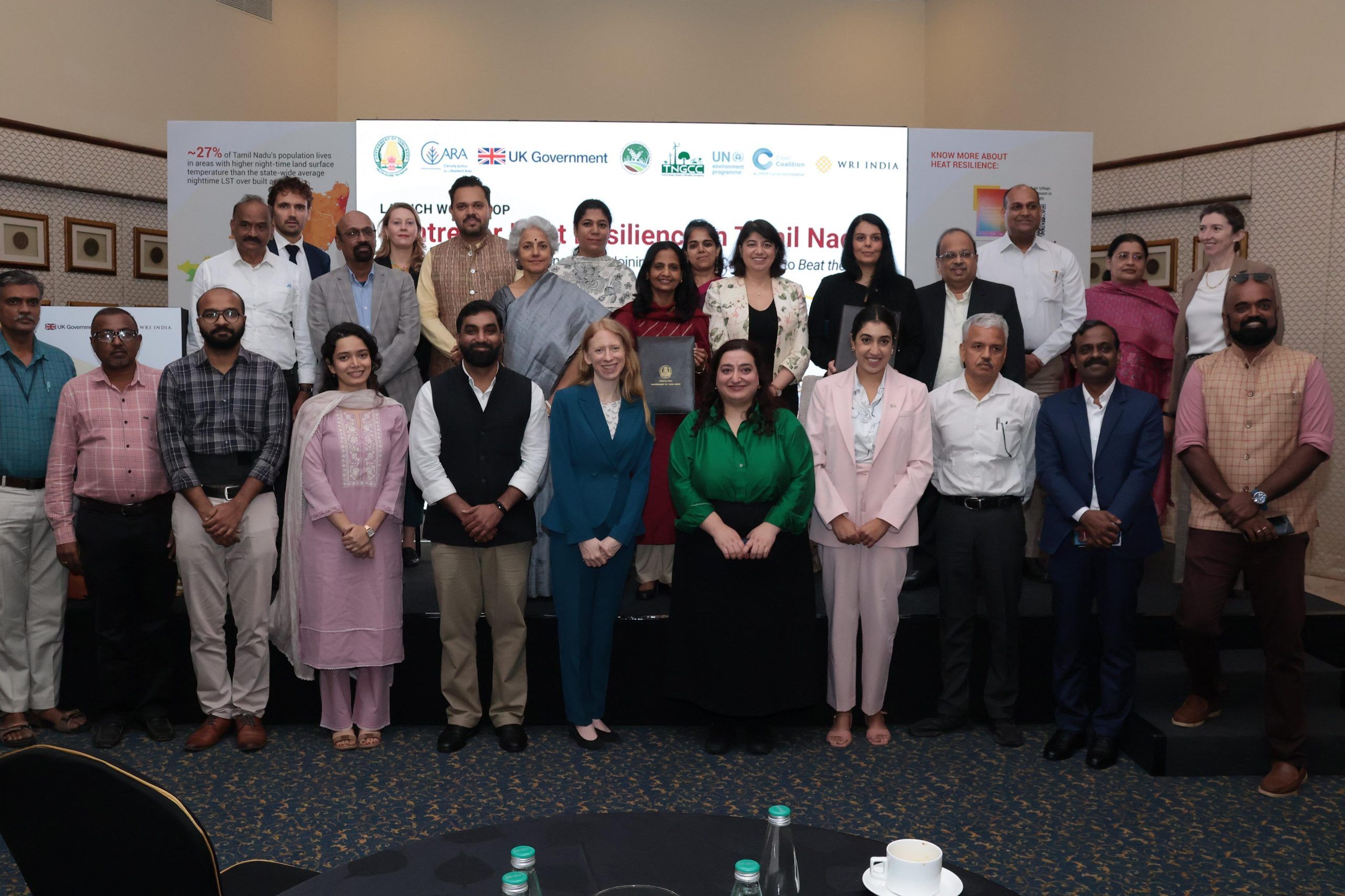A research team from Heriot-Watt University working with Sustainable Energy for All, has developed a first of a kind ‘Cooling for All: Needs-based Assessment’ and ‘Country-scale Cooling Action Plan: Methodology’ aligned to the United Nations’ (UN) Sustainable Development Goals (SDGs).
It is designed to provide Governments and development agencies with the contextual cooling demand, market data and gap analysis to design country-specific clean cooling solutions assessing, among other things, the policy, technology, capacity building and finance measures delivering access to cooling for all who need it sustainably.
More than 1 billion people do not have access to cooling and suffer the consequences. Recent reports suggest that unchecked warming and absent mitigation will result in 1-3 billion people, by 2070, being “exposed to mean annual temperatures warmer than nearly anywhere today.” How the world meets these challenges and provides cooling services for a growing number of people, will have significant ramifications for climate, environment and economic productivity.
For a Government to ensure that the cooling needs of their population are met equitably and sustainably, including for the most vulnerable – they first need to understand what these needs are – health, food, productivity and safety.
For example, how much cold-chain would be required to enable farmers’ incomes to double by 2025, or to end hunger and malnutrition? How much cold-chain is needed to provide access to vaccines? And not just for new-born children, or at-risk groups, such as the elderly, but broader population demands in the event of pandemics and epidemics. Or how many degrees of cool comfort is required to avoid heat stress at home or in the workplace? In short, what needs must be met in a country, to meet the SDGs – with no-one left behind?
An underestimation of the scale of the cooling demand and its impact on energy consumption risks contributing to a lack of ambition in policies, infrastructures and technology developments. It could ultimately have far-reaching social, economic and environmental consequences.
To address this and deliver clean cooling for all in alignment with the SDGs, the Paris Agreement on Climate Change, and the Kigali Amendment to the Montreal Protocol, we have developed a needs-based assessment of cooling which begins by going back to first principals: understanding how people use cooling today – how do they seek to maintain or enhance this level of cooling to meet their nutritional, health, economic and comfort needs; how much cooling do they need today, and how much will they need in the future?
The Needs Assessment is not a stand-alone tool but designed to quantify the cooling needs requirements at a national (or community) level as a first stage of an integrated toolkit, the output of which is sustainable and equitable “fit for market” cooling solutions. By combining needs with other resources and infrastructures such as energy, electricity and transport, we can enable optimum and “fit for the market” choices. This “Solutions Tool-kit” will be launched in Autumn 2020 by Sustainable Energy for All and Heriot-Watt University.
Why is this important?
Clean Cooling for All is not only urgent, but it is also complex. Developing sustainable and equitable solutions requires a holistic approach and a complete understanding of the need across multiple sectors. Deploying such integrated solutions will require smart coordination among many actors and industry sectors in planning, implementation, business models and systems management. We also need to understand the skills and capacity required to meet demand which varies significantly across countries and communities.
Specifically, we have set out to address two major challenges of current plans of equipment-phased projections:
-
- Failure to capture needs: equipment- based projections do not start by seeking to understand household, business or community needs and gaps, or address how demand for cooling solutions will be shaped by these needs. There is a lack of high-fidelity data on cooling demand at the household, neighbourhood/ community or business level.
- Pre-supposing a solution: a focus on per capita equipment penetration rates pre-supposes a top- down technical solution to cooling needs and risks. This approach ignores the possibility of electricity demand mitigation through the redesign of systems, the aggregation of demand, modal shifts, the use of waste or currently untapped resources, as well as support for existing cooling practices and behaviours.
The purpose of this Needs Assessment and Cooling Action Plan Methodology is to provide governments with the tools to better understand cooling and the actual scale of cooling demand in adapting to the paradigm shifts we face. In so doing, it will better define a country’s Cooling Action Plan and fit-for-market solutions which can simultaneously contribute to:
-
- Achieving: (i) safe thermal comfort for people, (ii) preservation of products and produce (medicines, food and others), and (iii) effective and efficient processes (data centres, industrial or agricultural production) for the benefit of all who need it.
- Delivering this in-line with the objectives of the Paris Agreement on Climate Change and the Kigali Amendment to the Montreal Protocol.
Click hear to download. For further information, please contact Professor Toby Peters, co-Director Centre for Sustainable Cooling [email protected].
Heriot-Watt University is a founding partner of the Centre for Sustainable Cooling, a collaboration of more than 20 Universities aimed at speeding up access to clean cooling.



